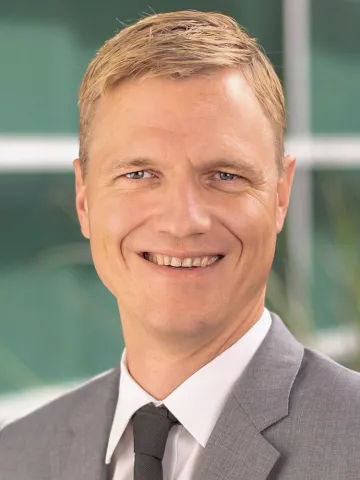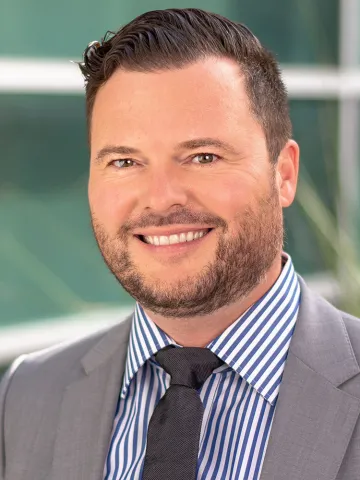More Power Means Less Trust

Consider a single mother who is between homes and promised the perfect new apartment at a great price.
The landlord, a wealthy man who owns properties across the city, says he doesn't have the lease drawn up yet but asks for a deposit to hold the unit and invites the young mother to move in right away. Will she trust the landlord's promises and write the check in hopes of moving her family in?

Oliver Schilke, Assistant Professor of Management and Organizations
New research by Oliver Schilke and Martin Reimann at the Eller College of Management and co-researcher Karen S. Cook of Stanford University gives surprising insight into that scenario.
The researchers designed a series of experiments that asked participants to consider, and sometimes supposedly interact with, a second participant. In one study, for example, participants were asked to sell a mobile phone, with rewards tied to the contract they negotiated. In another, they were asked to give away or keep money with the understanding that giving it away would triple the amount but that their unknown partner could then split it evenly with them or keep it all.
In each scenario, participants were given information to change how they perceived their relative advantage or disadvantage, and tests validated that the manipulations worked: Participants had very different perceptions of their own and/or their partners' empowerment as intended.
"In the final analysis, four studies converged on what many will see as a surprising finding: Power-disadvantaged actors placed significantly more trust in their more powerful scenario partners," said Schilke, assistant professor of management and organizations at the Eller College and assistant professor by courtesy in the UA School of Sociology.
The findings will be published in the article "Power decreases trust in social exchange" in a forthcoming issue of Proceedings of the National Academy of Sciences.
Rational Action Vs. Psychological Crutch
Returning for a moment to the single-mom scenario, one might have predicted she would see the powerful landlord as caring little about their connection — and therefore potentially opportunistic and untrustworthy. Conversely, one might have thought the landlord should see the woman as vulnerable, well aware of her own neediness and thus unlikely to cross him.

Martin Reimann, Assistant Professor of Marketing.
Those predictions would fit what social scientists call the "rational actor" model, which suggests that for all kinds of social transactions, we routinely and automatically put ourselves in our partners' shoes to size up if they should rationally feel a need to preserve our relationship. According to this model, if we think they should feel that need, we're more likely to trust them.
Instead, findings from these studies align with another model, "motivated cognition," which posits that people subconsciously work to reach conclusions that fit what they want to believe.
"Scientists see this behavior as a kind of psychological crutch—one way we minimize the discomfort we'd feel when our thoughts, beliefs and actions don't square," said Reimann, assistant professor of marketing in the Eller College and founding editor of the Journal of Neuroscience, Psychology and Economics.
"In this model, power-disadvantaged people are more likely to see an advantaged other as trustworthy because the alternative—feeling vulnerable to someone who might be both powerful and predatory—is just too uncomfortable."
Zooming In on Why
Schilke, Reimann and Cook believe these findings alone surface unique empirical knowledge of how power affects trust in binary social exchanges. However, taking the investigation further, their research also offers insight into what drives that trust from disadvantaged parties.
To unpack that dynamic, questions in the fourth study also probed participants on three ostensibly distinct dimensions of trust: belief in people's ability, integrity and benevolence. Put another way, when we think someone will do something, it's because of varying levels of belief that she can do it, will do what's right and is, at some fundamental level, a kind and well-meaning person.
In statistical analysis, the researchers found that belief in benevolence underlay the greater trust expressed by disadvantaged parties, but found no significant effects for belief in ability or integrity.
Photo of group throwing girl in air courtesy Shutterstock.

